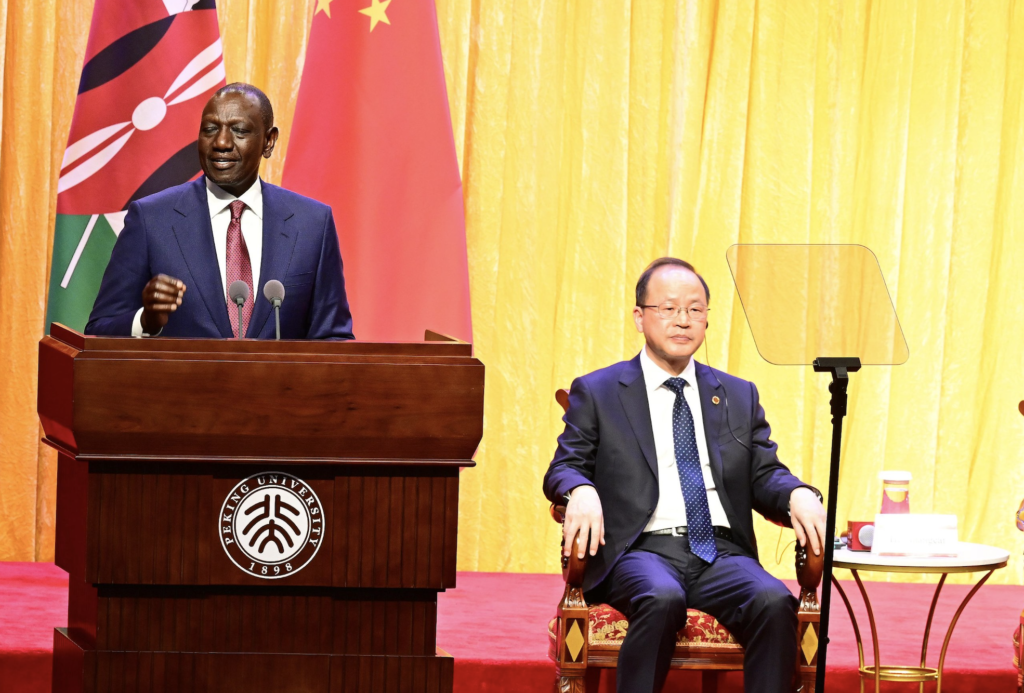President William Ruto has taken a bold stand on the world stage, calling for sweeping reforms to reshape the outdated global financial system.
According to the President, during his speech at Peking University in Beijing, China, the demand for transformative reforms has grown over the years for the international financial institutions to be aligned with contemporary geopolitical and economic realities.
And even though abolishing them would be better, reforms are the plausible solution at this current period. President Ruto stated that, as difficult as it is, it is still easier to reform than to abolish them, even though the latter would be the better option.
A remark shared by many around the world is that the current system is broken. There continues to be a glaring disparity between the shareholders and stakeholders of the Bretton Woods institutions. Wealthy nations continue to hold dominance in institutions like the World Bank and the IMF.
Despite Africa’s population booming over the years—set to make up a quarter of the world’s workforce by 2050—the rules of global finance remain unfavorable to the continent. They continue to be stuck in the past. A striking example is the IMF’s recent Special Drawing Rights (SDR) allocation, where rich countries, which didn’t even need the funds, received 64% of the support, while struggling nations got just 2.4%.
This imbalance showcases the urgent need for governance reforms to sever these institutions from the narrow national interests of their shareholders. The World Bank and IMF need to be truly independent.
They have to operate like modern corporations, free from political manipulation, with professional leadership focused on global development rather than serving the interests of a few.
This shift would restore credibility and fairness to institutions that now operate as relics of a bygone era. The time for change is here as Africa remains underrepresented in key decision-making bodies like the UN Security Council.
With the continent’s growing youth population and economic potential, a new era of fair representation is needed. This remark comes months after Kenya and IMF staff reached an understanding that witnessed the ninth review under the current Extended Fund Facility and Extended Credit Facility programs come to a halt.


